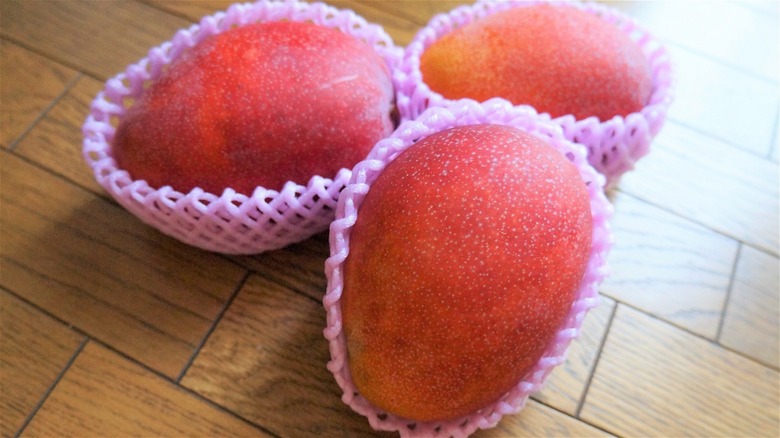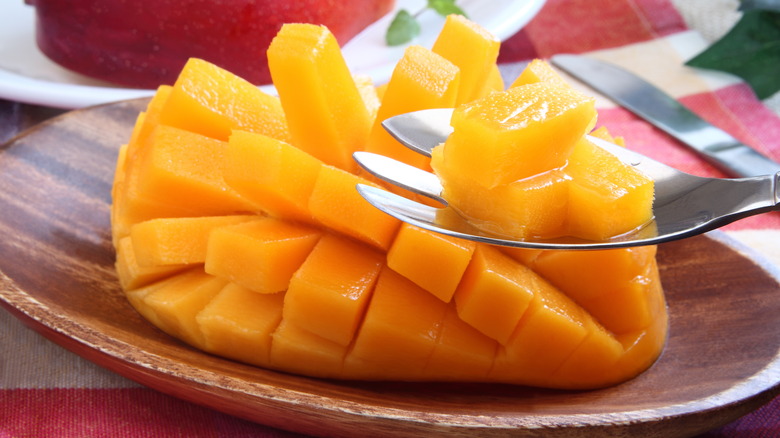The Reason Japanese Mangoes Are So Expensive
How much are you willing to pay for quality fruit? Japanese mangoes are one of the most premium fruit products in the world and have a reputation for being expensive and rare. Have you ever wondered why these mangoes can become so expensive? The key to their value is how the mangoes are prepared and the sustainability efforts behind the products.
None is more sought after than the Miyazaki mangoes, which can sell at auction for over $4,000. Miyazaki mangoes, also known as "Taiyo no Tamago" or "Egg of the Sun," are produced on the southern tip of Kyushu island in Japan. The region is known for harvesting top-quality fruit and produces gigantic Japanese mangoes that also have a different skin complexion. The sale price starts at around $50, but then quickly rises into the thousands. The mango is said to be originally sourced from an Irwin variety of mangoes in Florida that hardly catch the same price. Miyazaki mangoes are grown in greenhouses to create the perfectly sought product in size, flavor, and color. The fruits are not eaten regularly, but instead given as gifts and are often made into food products for purchase that are sold at fancy department stores in Japan and around the world. One department store in Canada was recently spotted selling Miyazaki mangoes for nearly $90 each this year, per Daily Hive.
Ideal weather conditions help Japanese mangoes flourish
Up north, Hiroyuki Nakagawa created Hakugin no Taiyo, or "Sun in the Snow," in Hokkaido's Tokachi region with a unique twist that draws special pricing. These Japanese mangoes are harvested in the winter utilizing Japanese hot springs to avoid the need for pesticides. The low humidity in Hokkaido also helps to avoid using chemicals used to fight mold. Releasing the mangoes in the winter makes them appear out of the typical season for the fruit, drawing up its value. The unique mangoes have a sweet flavor with a clean taste. They sell online for nearly $230 each, a far cry from the cheap mangoes you'll find readily available for under $5 in grocery stores around the United States.
Hiroyuki Nakagawa has his own startup business developing these premium fruits called Nora Works Japan. Nora Works Japan was founded in 2011 and just recently began shipping more outside of Japan after a decade in business, according to Kyodo News. Nearly 4,000 mangoes were harvested that year as the brand looks to expand and grow its business to the rest of the world. The company hopes to sell to luxury markets in the next few years, including Dubai, where people would be willing to pay top dollar for premium fruits.
One thing is clear, Japanese farmers and fruit producers have figured out the secret to making premium fruits and profiting wildly off of them.

